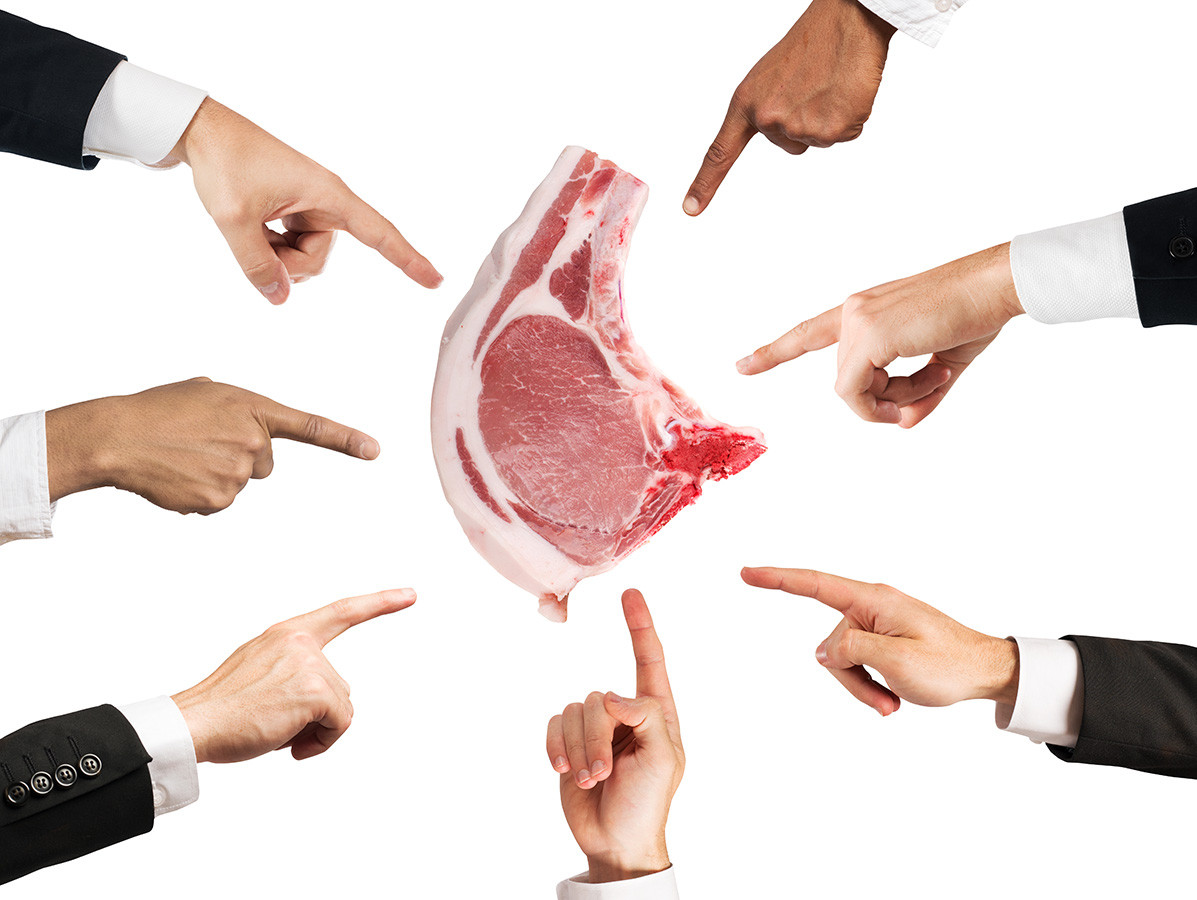
Meat production and consumption has transgressed into a sensitive, often controversial topic of discussion. Although there is a well-founded argument concerning environmental influence that requires change from various industries, meat often lands in the middle of an aggressive hyperbole where it is placed front and centre as ‘one of the world’s most urgent problems’ to tackle. In media, academic and policy circles there is a persistent trend towards unbalanced communications and anti-meat militancy that needs to be addressed.
In this context, the 69th International Congress of Meat Science and Technology kicked off with a keynote lecture by Prof. Frédéric Leroy on why meat matters with him making the case for this valuable food in a hostile environment. The lecture addressed two important questions which have not been adequately covered in scientific literature and which are fundamental for any debate on the future of meat. Firstly, how widespread and influential is anti-meat radicalism? Secondly, how should meat be defended in a hostile environment to enable the identification of more balanced strategies for food systems transformation?
Leroy meticulously provided evidence to show how certain power networks of academics, non-governmental organisations, mass media, and public-private partnerships have portrayed meat as an intrinsically harmful food choice, some being radical, disproportionally overstating its harms and demanding a drastic reduction or elimination of meat production and consumption. Anti-meat radicalism is amplified in science and policy environments by various factors.
Amplification by scientific institutions is fuelled by authoritative endorsement that adds credibility to claims made by scientists. For example, in 2019, The University of Oxford published the following quote on Twitter (recent rebranded as X), “A vegan diet is probably the single biggest way to reduce your impact on planet Earth, not just greenhouse gases, but global acidification, eutrophication, land use and water use [J. Poore, School of Geography & Environment]”. Highly ranked scientific institutions are the benchmark for other institutions; their narratives carry weight, while the general public barely contest these statements. Ideological viewpoints of scientists can lead to bias as they are often not separated from the objectivity that should embody science. A balanced view is often not kept, especially with increasing pressure on scientists to have societal impact.
Another concern is how governmental funding influences and steers academic research, while data are at risk to be manipulated to address certain political concerns. Amplification by wealthy and influential investors is achieved through their involvement in various alternative meat technologies and startups which markets plant-based and lab-cultured meat as the future replacement of animal source foods. Furthermore, through ideological activism (narrating the detriments of livestock farming) and considerable financial support, mass media has given alternative meats ample exposure. Open Philanthropy (a main Silicon Valley-linked funder of the vegan-tech industry and animal rights organisations) has sponsored publications that characterise livestock systems as harmful and unethical, pushing alternatives like lab-grown and precision fermentation products as appropriate meat substitutes that will save the planet. The impact of social media on anti-meat radicalism is immense. Social media influencers attempt to make their posts more credible by referring to scientific and journalistic messages that reinforce their own views, which then further encourages sensationalist reporting from academia and media.
Amplification by public-private partnerships is also eminent. In this regard, the EAT Foundation and its close partners strongly favour hard policies to drastically reduce meat production and consumption (e.g., taxing meat-eaters like smokers, nutritional warning labels, etc.), which would considerably affect the industry and markets. However, after scrutiny, EAT-Lancet’s planetary health diet has been shown to suffer from micronutrient shortfalls which would need to be addressed by increasing the animal sourced protein (fish, eggs, poultry, red meat, dairy foods) collectively from 12% to 26% (percentage calories in daily diet), while plant sourced protein would decrease from 23% to 13%.
Although some voices only ask for a moderation of meat consumption in high intake areas, others are demanding a complete swift to non-animal alternatives. Pat Brown, the founder and CEO of Impossible Foods said that “Livestock are a prehistoric food production technology [we’ll] ‘put the animal agriculture industry out of business. It’s that simple.” Yet, it is not simple with the reality being that livestock systems form an integral part of a sustainable system grounded on the people (society), planet (environment) and profits (economy). Hence, forcing change and minimising livestock beyond a critical threshold will inevitably come with unintended harmful effects on nutrient security, ecosystems and livelihoods.

The concerns raised in Leroy’s lecture are also embodied by ‘The Dublin Declaration of Scientists on the Societal Role of Livestock’ issued in October 2022. The Dublin Declaration is essentially a petition for pragmatism, demanding sufficiently high standards of evidence, and more respect for the principle of caution when it comes to policies that have the intention to severely challenge the role of meat and other animal source foods in future diets. Furthermore, meat science communication and education require more attention to help stimulate objective and balanced discussions in academia and media. In essence, meat and livestock “are too precious to society to fall victim of simplification, reductionism or zealotry”.
The purpose of Leroy’s lecture was not to prove either anti-meat or pro-meat wrong, neither to advocate for status quo, but to show how the current debate on meat and livestock is becoming increasingly unbalanced and polarised, and more attention-seeking and sensationalised. The future of the food system and the role that meat play at global level needs to be respected with arguments that rely on valid and contested scientific findings. Otherwise, drastic changes at societal and political levels could lead to detrimental trade-offs in the future for already fragile food systems.
Various improvements are needed to successfully transform the livestock system and they would need to lead to increased circularity and biodiversity, improved animal health and welfare, and more recognition of the local ecological context. All of this needs to be done within the limitations imposed by the nutritional and societal needs at population level. Making well-managed animals part of the solution, rather than the root cause of the problem, should be how we pave the way forward to meet future protein demands.
The entire text of the presentation can be read in the Italian Journal of Animal Science.
Source: vakblad Voedingsindustrie 2023